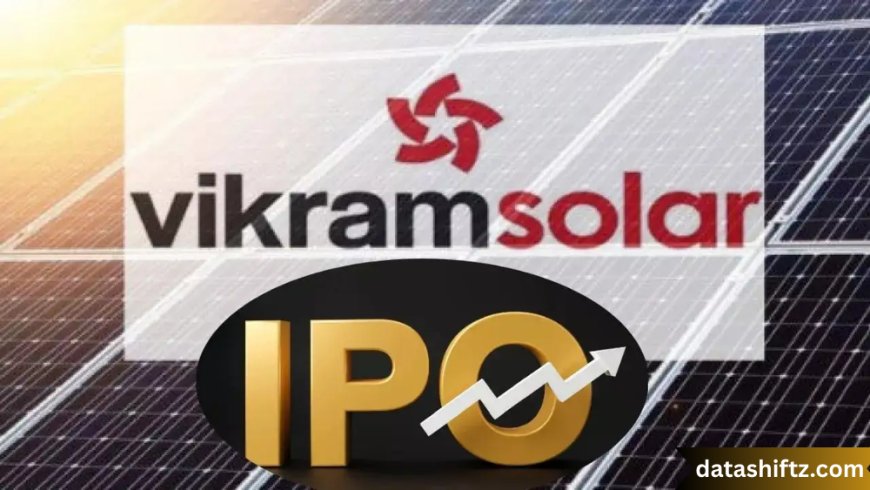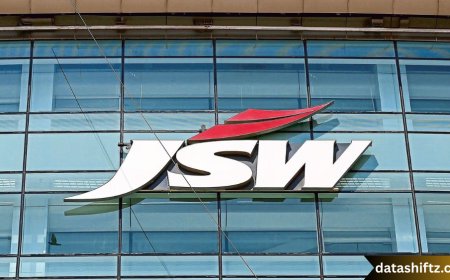Vikram Solar IPO Allotment Status: Everything Investors Need to Know

Introduction
Vikram Solar, one of India’s leading solar energy companies, recently launched its Initial Public Offering (IPO) to raise capital for expansion and innovation in the renewable energy sector. The IPO generated significant interest among retail and institutional investors, reflecting growing enthusiasm for green energy investments.
For investors who applied for the Vikram Solar IPO, checking the allotment status is a critical step to know whether their applications were successful and how many shares have been allocated. This blog post offers a comprehensive guide on Vikram Solar IPO allotment status — explaining the allotment process, timelines, where and how to check status, and tips for investors. Additionally, we will provide insights into the company’s background and the IPO’s key details.
Understanding Vikram Solar and Its IPO
About Vikram Solar
Founded in 2006, Vikram Solar has emerged as a pioneer in solar photovoltaic (PV) module manufacturing and solar energy solutions. The company focuses on delivering sustainable energy products that contribute to India’s renewable energy goals.
-
Core Business Areas:
-
Solar PV modules manufacturing
-
Engineering, Procurement, and Construction (EPC) services
-
Solar power plant solutions for utility-scale, commercial, and residential sectors
-
IPO Details
-
Issue Size: Approximately ₹[Amount] crore (please verify from official sources as the amount may vary)
-
Price Band: ₹[Price Range]
-
Issue Open Date: [Date]
-
Issue Close Date: [Date]
-
Listing Date: [Expected Date]
-
Purpose: Expansion of manufacturing capacity, R&D, working capital, and general corporate purposes
Significance of the IPO
-
Marks the company’s transition from a private to a public entity.
-
Enables access to public capital markets to fund growth.
-
Provides investors with an opportunity to participate in the green energy revolution.
What is IPO Allotment and Why It Matters?
Understanding IPO Allotment
When an IPO is oversubscribed (i.e., more applications than shares available), the company cannot issue shares to all applicants fully. The allotment process determines how many shares each investor receives, based on the number of applications and shares available.
How IPO Allotment is Decided
-
For Retail Investors: Usually a lottery system is used if the issue is oversubscribed.
-
For Institutional Investors: Shares are allotted based on demand and bid size.
-
For Non-Institutional Investors: Proportionate allocation methods apply.
Importance of Checking Allotment Status
-
Confirms whether your application was successful.
-
Helps plan your next steps—whether to prepare for share listing or consider alternative investments.
-
Avoids confusion or delays in receiving shares.
How to Check Vikram Solar IPO Allotment Status?
Official Methods to Check Allotment Status
| Method | Description | Website/Link |
|---|---|---|
| Registrar Website | Visit the IPO registrar’s website to check status | [Registrar Link] |
| BSE Website | Check the allotment status on Bombay Stock Exchange | https://www.bseindia.com/ |
| NSE Website | National Stock Exchange allotment status portal | https://www.nseindia.com/ |
| Your Broker’s Portal | Many brokers provide direct access to IPO status | Check your broker’s online platform |
| SMS & Email Notifications | Some registrars send updates via SMS or email | Based on application details |
Step-by-Step Guide to Check Allotment Online
-
Visit the Registrar’s Website: (e.g., Link Intime or Karvy)
-
Find the IPO Allotment Section: Usually listed under "Investor Services" or "IPO."
-
Enter Details: PAN number, application number, or DP/client ID.
-
Submit and View: The portal will display allotment status and number of shares allotted.
-
Download Allotment Letter: Optional, for record-keeping.
Key Dates for Allotment and Listing
| Event | Date |
|---|---|
| IPO Application Close | [Date] |
| Allotment Finalization | Typically within 5-7 days post-closure |
| Refund Initiation | On or before the allotment finalization date |
| Credit of Shares to Demat Account | Usually 1-2 days before listing date |
| Listing on Stock Exchanges | [Date] |
Tips for Investors Post-Allotment
-
Verify Demat Account: Ensure your demat account details were correctly provided during IPO application.
-
Monitor Refunds: If you don’t receive shares, check refund status to confirm return of funds.
-
Track Listing Day: Observe the stock’s market debut to decide on holding or selling.
-
Understand Lock-in Periods: For anchor investors or promoters, lock-in rules apply — retail investors usually have no such restrictions.
-
Consult Your Broker: For any discrepancies or queries about allotment.
-
Stay Informed: Follow company announcements and market news for post-listing performance.
Common IPO Terms and Their Meaning
| Term | Explanation |
|---|---|
| IPO | Initial Public Offering – when a company sells shares to the public for the first time. |
| Allotment | Distribution of shares to investors who applied. |
| Oversubscription | When demand exceeds shares offered in IPO. |
| Registrar | The entity managing the IPO application and allotment process. |
| Demat Account | Digital account where shares are credited post allotment. |
| Refund | Return of application money if shares are not allotted. |
| Listing Date | The first day shares are traded on the stock exchange. |
Conclusion
The Vikram Solar IPO represents a landmark opportunity for investors to participate in India’s growing renewable energy sector. While the excitement of applying is significant, tracking the IPO allotment status is equally important to know your investment outcome.
With multiple channels available to check allotment status, investors should promptly verify their shares and take necessary follow-up actions. Keeping track of allotment and listing schedules can help investors plan their trading and investment strategy efficiently.
As India pushes towards a greener future, companies like Vikram Solar are at the forefront, making their IPOs worth close attention from investors who seek growth aligned with sustainability.





























